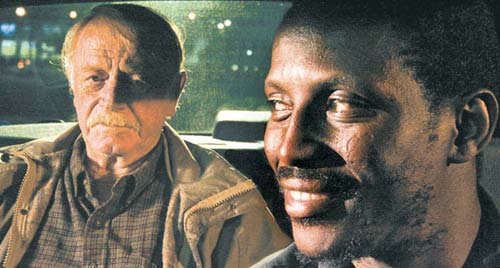
You’d think that having done Toronto for six years now that I’d have it all figured out. But somehow I forgot what five-film days are like and scheduled three of them in a row. Not smart by me. So I wake up this morning tired. No, exhausted. Yet the first movie is one of the more acclaimed films to come out of Cannes. How can I pass that up? So I roll out of bed for a 9 a.m. screening. Somewhere the scheduling gods are chuckling.
In a more miserable world, the movie would stink, but not this time. Hunger earns its praise with a strong, unusual narrative and striking directorial choices. The movie is about Bobby Sands’s hunger strike in 1981 when he was imprisoned for crimes he committed with the Irish Republican Army. Interestingly, though, Sands is rarely onscreen for the first third of the movie. Instead, director Steve McQueen (no, not that Steve McQueen) focuses on a British prison guard, then two other I.R.A. prisoners. In this way, he conveys what a horrible situation this is for prisoners and guards alike.
This also removes every pitfall over which bio-pics often stumble. This isn’t hagiography. It’s also not an attempt to encapsulate all of Sands’s life or even find great inspiration in his deeds. Instead, it’s a capsule of the bitter conflict between the I.R.A. prisoners, who demanded political status and the rights that went with that, and the British government, who considered them terrorists and refused to give in. And by focusing exclusively on the prison, McQueen shows how those two positions created a cycle of violence that had ramifications well beyond those cells.










